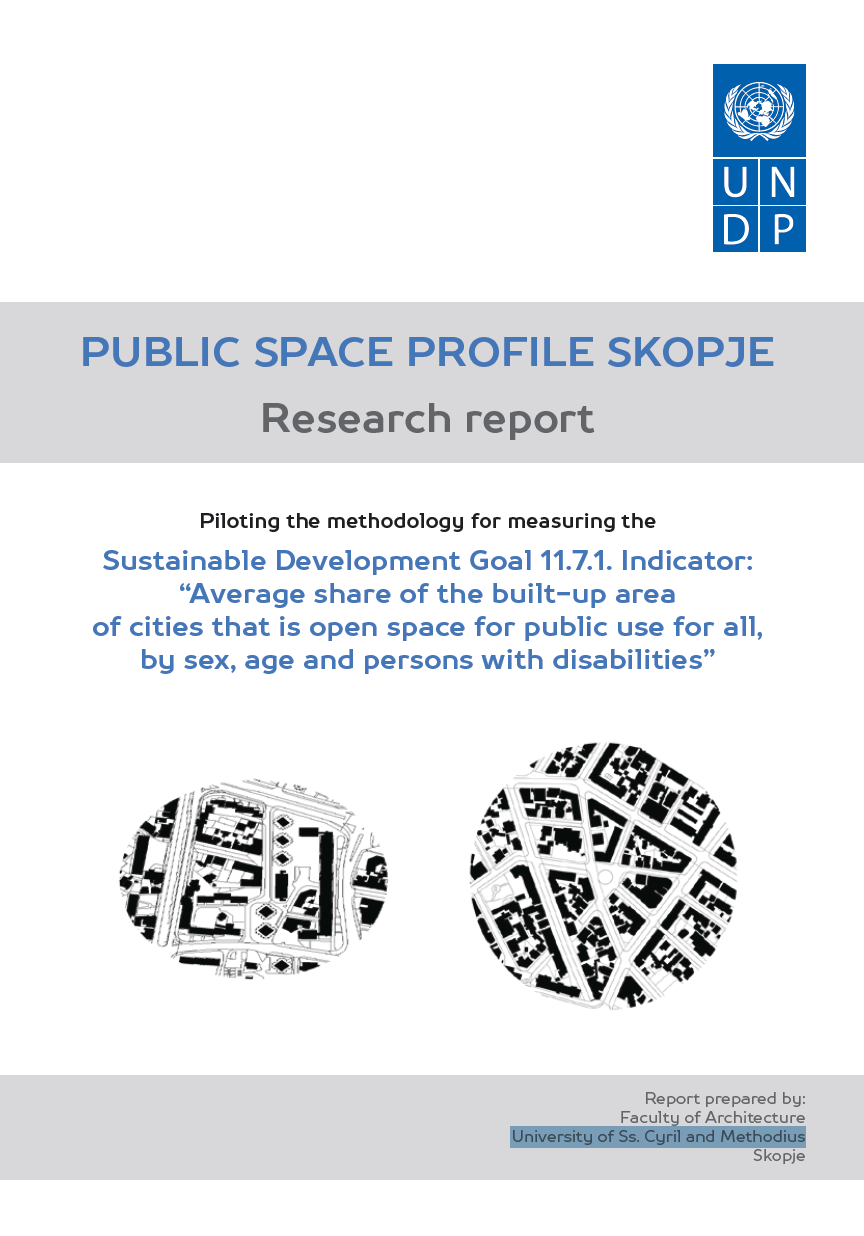Resource information
This Public Space Profile of the City of Skopje provides a brief overview of current practices in the development and management of public space in Skopje and a profile of the availability and quality of public space. The report addresses numerous institutional, technical and human dimensions of public spaces in Skopje, including:
- a definition of ‘urban public space’ in the context of SDG 11.7;
- a brief overview of international and national legislation and policies relevant to public space;
- a definition of relevant quantitative and qualitative indicators in relation to public space and SDG 11.7;
- a baseline analysis of public space availability and quality in the city of Skopje, analysed according to selected parameters regarding built-up areas, including open space for public use by all, by sex, age and persons with disabilities, and with a focus on green areas.
This report was pioneering in its methodology, for the first time measuring quantitative and qualitative parameters of public spaces in Skopje as defined by SDG 11 and Target 11.7. The research methodology was applied to two samples within the Municipality of Centar, as the most central locations in the capital. A key objective of this pilot project was to ascertain the feasibility and aptitude of applying this research methodology, providing lessons for refining future analyses of public spaces across the whole of Skopje and other towns throughout Macedonia, as well as its possible scaling-up to application in other countries.
The methodology applied in the research for this report was developed by UN Habitat for measuring the important indicator 11.7.1. This report is unique in presenting the outcomes of systematically piloting this methodology and we hope that its findings will be of value to public space development worldwide.
The research was commissioned by UNDP’s Country Office as part of a wider cross-regional project entitled Measuring the Unmeasured/ Venturing Into the Unknown: How Can We Measure SDG Tier III Indicators? This project aims to make use of new and alternative sources of data and technologies to support national partners’ efforts to measure the progress of their sustainable development agendas, specifically in relation to Tier III indicators. Effective measurement of these parameters will contribute towards a culture of evidence-based decision-making, informed policies and programmes, and strengthened state-society relations in a growing number of countries in the two regions.
The research includes publicly available data, cadastre data, GIS-tools and field research. The findings from the research inform a set of recommendations that will provide a solid basis for future discussions on informing and improving urban policies for the development and management of public space.


